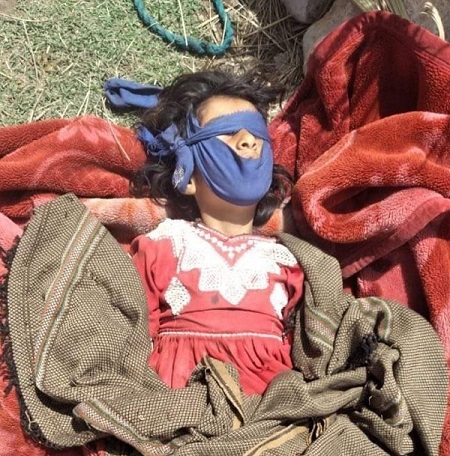
The policy of collective punishment has a historical background behind it. Collective punishment has been used as a war crime at different times in history by the powerful against their opponents. It is basically a kind of punishment that is given to the whole population to avenge an individual’s mistake. So the individual who has committed a ‘wrong’ faces punishment along with his family, friends and neighbours, who neither have any control over the individual’s actions nor had any supporting hand behind the wrong committed by individual. Such collective punishments are inflicted upon the whole society by powerful regimes in order to create a fear psychosis amongst the masses.
Examples of such collective punishments can be found in the history and also in the present. In the past, Kings used to harm entire society as a punishment for the wrong committed by a single member of the family, in order to strengthen their rule. The countries, on the other hand, also used such brutal type of punishments during war against innocent civilians of the enemy country. For instance, Germany during the World War-I bombarded civil population of Poland killing thousands of innocent people. Also take the example of world’s superpower USA that dropped two atom bombs on Japan on the 6th and 9th August 1945 that killed millions of innocent Japanese. In every corner of world, collective punishment has been used against opponents and is still being used in several countries.
However, such cruel punishments are also used by some countries against a section of their citizens who are fighting for their community’s independence. The families of these freedom fighters are tortured in an effort to pressure them. Collective punishment, as quoted above, is used as a tool against freedom fighters to make them surrender forcefully or to stop them from launching serious attacks on the occupying military forces.
Currently, such unjust punishment is used by the security forces of Pakistan in different parts of Balochistan where freedom struggle is on its historical peak. Hundreds of inhabitants of Balochistan, mostly from the Baloch residential areas, have been compelled to leave their homes. Millions of Baloch houses have been burnt on the suspicion of Baloch freedom fighters living inside or on the allegation of Baloch freedom fighters seeking shelter in these houses. Generally speaking, most of the parents, siblings and even relatives of these Baloch freedom fighters are tortured, which is against rules of war and Geneva Convention of 1949. The Geneva Convention 1949 has several articles which discourage collective punishment.
According to Geneva Convention’s Article 87, all forms of collective punishment are prohibited. The Convention further reads that whole community should not be harmed for the wrong done by a single person as the whole community is not responsible. The Geneva Conventions are a set of treaties established in the mid-20th century to enact laws and protocols for humanitarian treatment during wartime. Pakistan is one of the signatories of this document. The international community should come forward with concrete steps in order to make sure that the international laws are followed in letter and spirit. The situation in Balochistan on account of brutal and collective punishment is worsening with each passing day.
Occupied Balochistan needs the immediate concern of international community, as entire Baloch population is bearing the brunt of collective punishment. Pakistan should be made responsible before international communities and Court of Justice as to why a signatory has been given free hand. Why a signatory member challenges the rules and regulations prescribed for equal safeguard and protection of common people during war time situation. A country such as Pakistan is not only violating Geneva Conventions but also breaching international laws operating documents such as the International Covenant On Civil And Political Rights etc.
